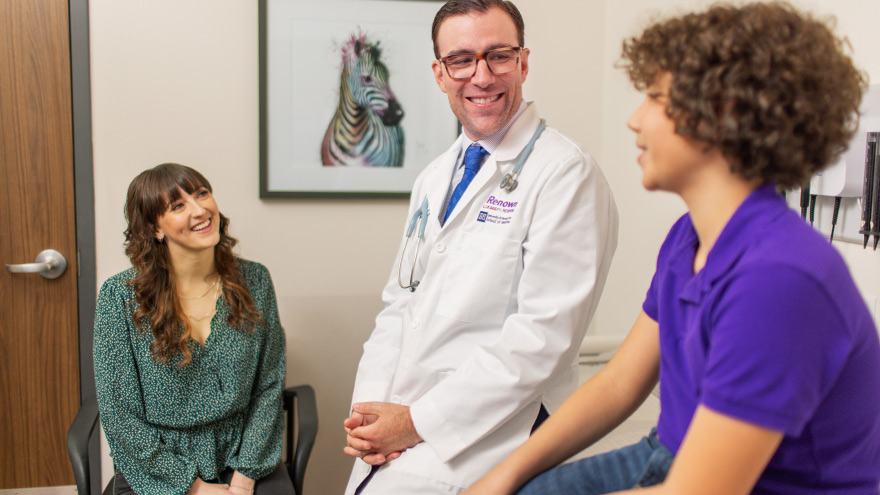Cold and Flu 101: What You Need to Know
October 18, 2024

How do you prevent the seasonal flu?
The annual flu vaccine is truly the best form of protection to help prevent the spread of the flu. Even if you do get the flu after being vaccinated, your symptoms will be lessened. Flu vaccines are available to the community. You can schedule a flu shot with your Primary Care provider through MyChart or through the Renown Pharmacy. Visit renown.org/flu for more information.
Who should get the flu shot?
Almost everyone. The Centers for Disease Control and Prevention recommends a yearly flu vaccine for everyone 6 months of age and older as the first and most important step in protecting against influenza. Different flu shots are approved for people of different ages, but there are flu shots that are approved for use in people as young as 6 months of age and up. Flu shots are approved for use in pregnant women and people with chronic health conditions.
Vaccine Appointments

Vaccine Appointments
How do you know if it’s the flu or a cold?
The flu and the common cold have similar symptoms and it can be difficult to tell the difference between the two. Your healthcare provider can give you a test within the first few days of your illness to determine whether or not you have the flu.
In general, the flu is worse than the common cold. Symptoms such as fever, body aches, fatigue and cough are more common and intense with the flu. People with colds are more likely to have a runny or stuffy nose.
Flu symptoms include:
- A 100 degree or higher fever or feeling feverish (not everyone with the flu has a fever)
- A cough and/or sore throat
- A runny or stuffy nose
- Headaches and/or body aches
- Chills
- Fatigue
- Nausea, vomiting, and/or diarrhea (most common in children)
Does washing your hands really help prevent sickness like cold and flu?
Yes. Again, the single best way to prevent seasonal flu is to get vaccinated each year, but good health habits like washing your hands often can help stop the spread of germs and prevent illnesses like the cold and flu.
The proper way to wash your hands is to wet them with clean, running water (warm or cold) and apply soap. Lather your hands by rubbing them together. Be sure to lather the backs of your hands, between your fingers and under your nails. Scrub your hands for at least 20 seconds. If you need a timer, hum the “Happy Birthday” song from beginning to end twice. Rinse your hands well and dry them using a clean towel or air dry them.
If soap and water are unavailable, use an alcohol-based hand sanitizer that contains at least 60 percent alcohol to clean hands.
Other good health habits include covering your cough; avoiding close contact with people who are sick; staying home when you are sick; and practicing a healthy lifestyle by getting plenty of sleep, being physically active, drinking plenty of fluids and eating nutritious food.